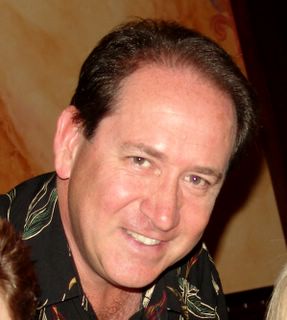As I watched our 4th grader enter the classroom for her first day of school, I was overwhelmed by the regimentation of these sweet little children. Thirty five kids with backpacks in tow, feeling the first separation after the summer from anxious parents standing by, marched into the building in groups of ten at a time. Their teacher, a kind, dedicated multi-decade veteran of elementary school habit, at one point in the “ceremony” stomped over to a group of three dressed-for-jogging young moms to reprimand them for talking so loudly that the children couldn’t hear the teacher’s directions. I like a take-charge attitude, but I still couldn’t get the idea that I had recently read about, out of my mind, that this scenario seemed more like prisoners being led to their cells then it did of happy enthusiastic children entering a “palace” of learning.
John Taylor Gatto is a former New York State and New York City Teacher of the Year and the author of The Underground History of American Education. In a short article, “AGAINST SCHOOL: How public education cripples our kids, and why” he reviews the history of the present US public school system, its derivation from the 19th century militaristic Prussian background, and his conclusion of how it does not serve our children.
Gatto quotes the famous writer H. L. Mencken:
H. L. Mencken, who wrote in The American Mercury for April 1924 that the aim of public education is not
to fill the young of the species with knowledge and awaken their intelligence. ... Nothing could be further from the truth. The aim ... is simply to reduce as many individuals as possible to the same safe level, to breed and train a standardized citizenry, to put down dissent and originality. That is its aim in the United States... and that is its aim everywhere else.
Gatto goes on to show how the elite powers-that-be historically had a hand in creating the US school system and curriculum, and that this provides a class of “servant” individuals which is perfect for the purpose of catering to the small ultra-upper class.
Whether or not one wants to subscribe to this radical opinion, the truth is that there are many elements wrong with the basic nature of compulsory education, and there is a lot of advocacy in the air for change. Gatto’s explanation of how the “institution” of public school was developed is helpful if one ponders how many other ways it could be set up.
Consider the following aspects of school that we take for granted—that children go to school every weekday, with a few minor breaks, for ten months a year and have two months off in the summer; that they go to school at ridiculously odd hours, locally from 7:45 am to 2 pm (I went to school 9 – 3 in the late 1950‘s); that children are expected to begin reading in Kindergarten, that they have homework every night, that they are continually tested to determine if they are keeping up to a certain state-prescribed level of maintenance; and finally, that all children are expected to become experts in all subjects, including advanced math and algebra--disciplines they will never use in most cases once they have left high school. Yet in reality people specialize in certain areas in their employment—no one is an expert on everything—neither are children, yet they are taught that way.
One new book, The Case Against Homework: How Homework Is Hurting Our Children and What We Can Do About It by Sara Bennett, Nancy Kalish, specifically states that
...there is almost no evidence that homework helps elementary school students achieve academic success and little evidence that it helps older students. Yet the nightly burden is taking a serious toll on America’s families. It robs children of the sleep, play, and exercise time they need for proper physical, emotional, and neurological development. And it is a hidden cause of the childhood obesity epidemic, creating a nation of “homework potatoes.”
I didn’t like school when I went through it 40 years ago. I was bored most of the time, except when I was given an assignment to do an independent “project” about a subject of my choice. I never had homework until the 7th grade—jr. high school—and then it was never-ending. I was under the certain perception that I was inadequate in my performance, and as a person. I developed huge insecurities, despite the fact that I had an above average I.Q., was always near the top of my class, and had a great talent for playing the piano. What I did was never enough, and my teachers were always insistent on telling me so.
The fault lies in the system itself, not in the teachers, some of whom are dedicated beyond excellence, nor in the parents, nor in the students themselves. The constant testing and subsequent fault-finding in each individual child (unless you get 100% or A+, you did something wrong) makes most of them question their capabilities, and no two children at any given age are going to have the same abilities, so most US school children wind up developing insecurities which take years to overcome.
I can’t believe my fellow parents standing next to me watching our children enter the 4th grade classroom want the devastating outcome of their education that I just described. What was good enough for me is not good enough for my children. I wonder how many other parents feel that way.
It is proven among animals, and that includes human beings, that positive reinforcement will always produce much better and more thorough results than negative reinforcement. When my wife volunteers in the class and tells the children how great they are doing on an art project, they always respond positively, even the ones who have Attention Deficit Disorder, or who are unruly or rebellious, and they all love to have her to come to the class. Some of the teachers of our children have that knack as well, but it is not what they are taught—they’re instructed on curriculum and goals, not human nature.
Roger Shank, who I’ve quoted before, is an authority on learning. He is a psychologist and computer scientist and author of dozens of books on the subject of how people learn. Here is a sample of his expert opinion on the US school system:
After a natural disaster, the newscasters eventually excitedly announce that school is finally open so no matter what else is terrible where they live, the kids are going to school. I always feel sorry for the poor kids.
My... idea is one that most people immediately reject without giving it serious thought: school is bad for kids — it makes them unhappy and as tests show — they don't learn much. When you listen to children talk about school you easily discover what they are thinking about in school: who likes them, who is being mean to them, how to improve their social ranking, how to get the teacher to treat them well and give them good grades.
Schools are structured today in much the same way as they have been for hundreds of years. And for hundreds of years philosophers and others have pointed out that school is reallya bad idea:
We are shut up in schools and college recitation rooms for ten or
fifteen years, and come out at last with a belly full of words and do not know a thing. — Ralph Waldo Emerson
Education is an admirable thing, but it is well to remember from time to time that nothing that is worth knowing can be taught.—Oscar Wilde
Schools should simply cease to exist as we know them. The Government needs to get out of the education business and stop thinking it knows what children should know and then testing them constantly to see if they regurgitate whatever they have just been spoon fed.
And from Gatto’s article, his conclusion:
First, though, we must wake up to what our schools really are: laboratories of experimentation on young minds, drill centers for the habits and attitudes that corporate society demands. Mandatory education serves children only incidentally; its real purpose is to turn them into servants.
There is a solution, ultimately, to this amazing quandary of such a broken institution as how we educate our next generation. The answer is not unlike the way to correct the broken health-care system, or our misdirected foreign policy: we the people have to make known our concerns, by voicing opinions like this blog, by writing our elected representatives from the national level down to the city council, and by voting for those who want to make changes. And the changes require experts who are willing to stand up to the crowd that utters the universally unproductive mantra, “We’ve always done it this way.” “This way” isn’t working in the schools, and never did. People are not indigenously lazy enough not to be able to make changes. People just need to know there is a better way. I know there is.
I’ll be happy to sign off on any homework my children do not want to finish any day of the week. That’s a start—after all, this is just the first day of school.



